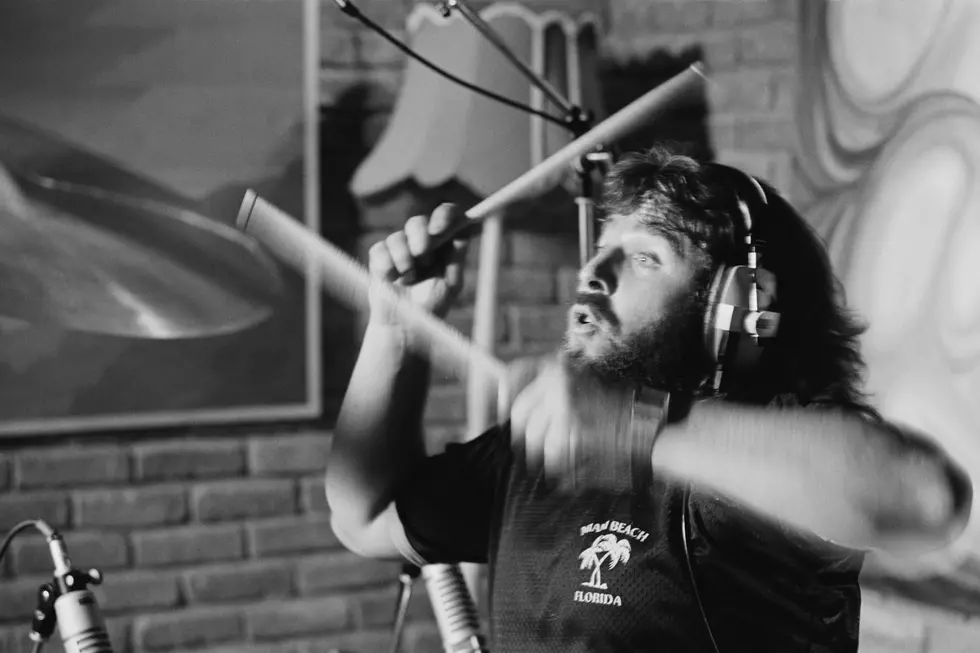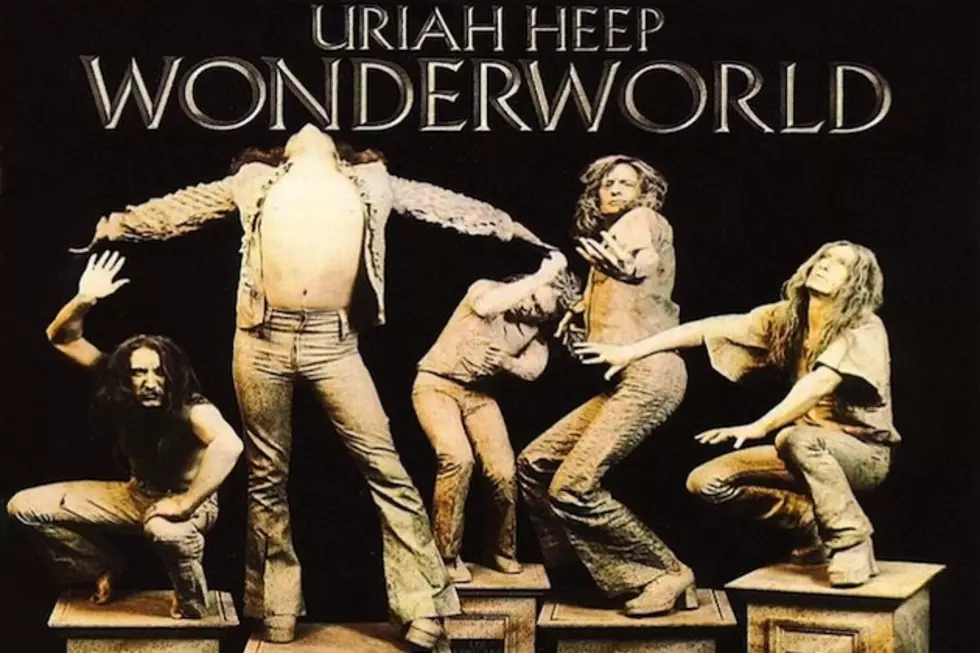
When Uriah Heep’s Debut Album Helped Launch Heavy Metal
For roughly 120 years, Uriah Heep was just a fictional character in Charles Dickens’ famous novel David Copperfield – albeit a memorable one. As of June 13, 1970, however, that name would arguably gain wider renown of a different sort – thanks to its adoption by one of heavy metal’s founding bands.
Their debut album, released on that day, arrived under different titles, behind different cover images and boasting slightly altered track listings in the band’s U.K. homeland and their future proving grounds in the U.S. (Both editions are shown above.)
At home, that debut was titled Very ‘eavy … Very ‘umble, depicted a cobwebbed ghoul (actually lead singer David Byron) on its front sleeve, and came out through Philips' progressive rock imprint, Vertigo. In America, it was simply named Uriah Heep, came wrapped in a striking gatefold drawing of a terrifying winged worm creature, and was issued by Phillips’ Chicago-based affiliate Mercury Records.
In both territories, and others around the globe, listeners were presented with an instantly distinctive musical formula, constructed around Byron’s operatic vocals, Mick Box’s pile-driving guitar riffs and Ken Hensley’s florid organ playing. (Bassist Paul Newton and several session drummers rounded out the recordings.) The mixture, needless to say, proved almost uniformly irresistible.
Listen to Uriah Heep's 'Gypsy'
The bombastic qualities of heavy metal’s revolutionary blueprint were all in evidence on the album’s dramatic opener, “Gypsy,” while its roots in late ‘60s British blues came through loud and clear on ensuing offerings like “Walking in Your Shadow,” the Newton-contributed “Dreammare” and the slide-guitar-enabled “Real Turned On.”
Elsewhere, the loosely applied “progressive” tag was earned by the multi-sectioned standout “I’ll Keep on Trying,” the jazzy inflections and gentle denouement of “Wake Up (Set Your Sights)” and Heep’s sensitive reworking of the Hellerman/Minkoff folk standard, “Come Away Melinda” (previously recorded by Harry Belafonte, Judy Collins, and others), which hereby qualified as one of hard rock’s first ballads.
Finally, while U.K. buyers were regaled with the laid-back, virtually metal-deprived “Lucy Blues,” their U.S. counterparts arguably came out on top when that was replaced by an alternate version of U.K. single side, “Bird of Prey,” which is widely recognized today as one of heavy metal’s most spectacular 1970 cornerstones.
As with most metal bands in the early days of the genre, Uriah Heep’s first album was met dismissively by critics, most notably Rolling Stone’s Melissa Mills: “If this group makes it, I’ll have to commit suicide.” They ignored it all, however, continuing to make music despite numerous lineup changes while maintaining a strong fan base, particularly in Europe.
See Uriah Heep and Other Rockers in the Top 50 Metal Albums
More From Ultimate Classic Rock









